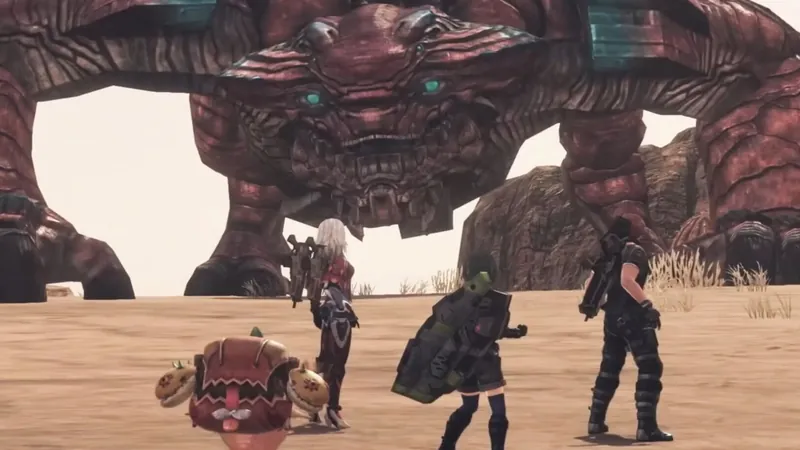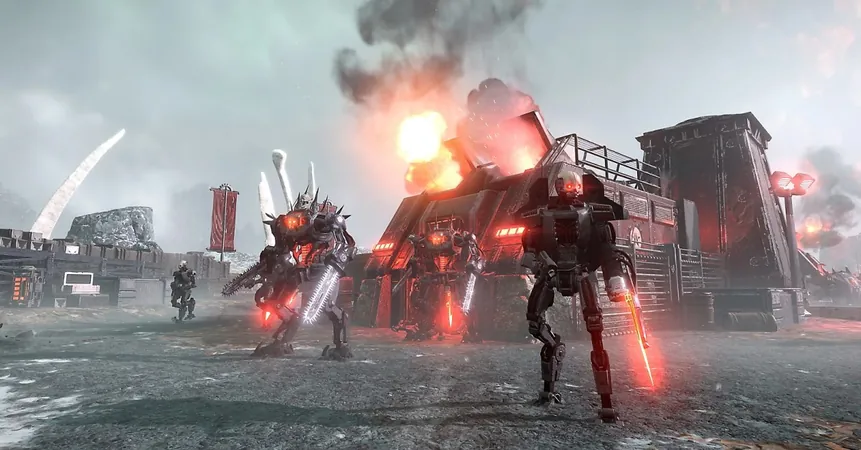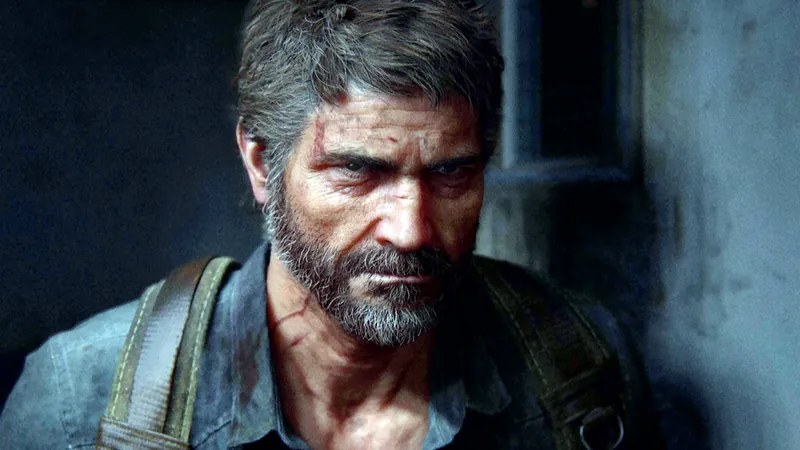
‘Xenoblade Chronicles X: Definitive Edition’ – A Mixed Bag That Still Shines
2025-03-18
Author: Benjamin
In the realm of RPGs, few developers stand out like Monolith Soft. Their unique ability to interweave sci-fi narratives with deep philosophical themes sets them apart. With over three decades of experience under the guidance of Tetsuya Takahashi, the studio has crafted tales that explore human emotion, existentialism, and moral dilemmas. The latest re-release, ‘Xenoblade Chronicles X: Definitive Edition’, is a remaster of the series’ most unconventional installment, which initially launched on the Wii U in 2015, a console that unfortunately didn't soar in sales. While the remaster falls short in certain areas, it undeniably remains one of Monolith’s most intriguing creations.
Starting with its roots, the Xenoblade series emerged from the remnants of the earlier ‘Xenogears’ in 1998, a project that struggled for recognition during the rise of ‘Final Fantasy VII’. ‘Xenogears’ dared to delve into themes of identity, faith, and the fragility of existence, using video game storytelling as a medium for philosophical exploration. This foundation led to a series of titles, including the 2010’s ‘Xenoblade Chronicles’, which shifted the focus to more traditional RPG mechanics, though retaining glimpses of philosophical depth.
The evolution continued with ‘Xenoblade Chronicles X’, which returned to expansive explorations of intergalactic themes. This title, alongside later entries like ‘Xenoblade Chronicles 2’ and ‘Xenoblade Chronicles 3’, showcases the studio's commitment to pushing the boundaries of the genre.
However, ‘Xenoblade Chronicles X: Definitive Edition’ is far from perfect. The remaster leaves much to be desired in terms of graphical enhancements. While some character models, like the protagonist Elma, look significantly upgraded, others appear only slightly improved from their original form. This uneven application of updates can distract players from the overall experience, particularly when compared to the polished visuals of the 2020 remaster of the original ‘Xenoblade Chronicles’.
The voice acting and sound design remain unchanged, with some audio elements lacking clarity. A notable example includes the jarring similarity in sound effects between a giant creature drinking and a dog at a water bowl, which could detract from the immersive experience.
The music, too, has not received the attention it deserves. Many themes feel repetitive and uninspired. For instance, a prominent hub theme can feel like it loops without ever fully realizing its potential, missing the vibrant auditory creativity displayed in the other entries of the series.
At its narrative core, ‘Xenoblade Chronicles X’ operates as a rich parable of human behavior and the consequences of superiority complexes. It introduces players to a group of survivors fleeing Earth as they seek refuge on the planet Mira after a devastating alien attack. The player assumes the role of a silent protagonist stripped of memories—allowing a fresh perspective as players navigate the dichotomy of human survival, ethical dilemmas, and the dark potential of militaristic governance disguised as protection.
The game employs the classic trope of an amnesiac hero but does so in a way that invites players to re-examine their biases and assumptions. The disparity between BLADE, the player’s organization, and the harsh reality of their militaristic operations serves as a critique of society and the justification of power. As players delve into the narrative, they uncover the complexities of existence in this new reality where the threat of extinction remains ever-present.
While the primary storyline is quite focused, the game’s numerous side quests—collectively referred to as Affinity Missions—flesh out the world of New Los Angeles and its inhabitants, offering deeper insight into the main characters and the socio-political dynamics at play. These missions, although not extraordinarily deep, allow players to engage with the story beyond the main questline, adding layers to the overarching theme of establishing civilization in an alien world.
Exploration in ‘Xenoblade Chronicles X: Definitive Edition’ is further enhanced by its vast open-world design, a significant departure from previous titles. Players can traverse diverse ecosystems without the restrictive boundaries typical of other RPGs, leading to a genuine sense of adventure. The exhilarating experience of discovering new landscapes, from lush fields to perilous mountains, is accentuated by the thrill of encountering unpredictable elemental foes.
Combat mechanics are robust, featuring a class-based system that permits diverse weapon combinations and strategies, reminiscent of titles like ‘Monster Hunter’. The battles are intricate, rewarding players for targeting specific enemy parts, which enhances crafting opportunities and overall immersion. However, the learning curve is steep, and the lack of clear tutorials may frustrate new players, even though dying incurs only minor setbacks.
In conclusion, while ‘Xenoblade Chronicles X: Definitive Edition’ may not live up to the lofty expectations set by its title, it remains a captivating addition to the Nintendo Switch library. The game’s rich narrative, compelling themes, and expansive open world solidify its status as a notable RPG, despite its deficiencies in polish and remastering. For fans and newcomers alike, exploring the universe crafted by Monolith Soft offers not just entertainment but also poignant reflections on humanity’s place in the cosmos.









 Brasil (PT)
Brasil (PT)
 Canada (EN)
Canada (EN)
 Chile (ES)
Chile (ES)
 Česko (CS)
Česko (CS)
 대한민국 (KO)
대한민국 (KO)
 España (ES)
España (ES)
 France (FR)
France (FR)
 Hong Kong (EN)
Hong Kong (EN)
 Italia (IT)
Italia (IT)
 日本 (JA)
日本 (JA)
 Magyarország (HU)
Magyarország (HU)
 Norge (NO)
Norge (NO)
 Polska (PL)
Polska (PL)
 Schweiz (DE)
Schweiz (DE)
 Singapore (EN)
Singapore (EN)
 Sverige (SV)
Sverige (SV)
 Suomi (FI)
Suomi (FI)
 Türkiye (TR)
Türkiye (TR)
 الإمارات العربية المتحدة (AR)
الإمارات العربية المتحدة (AR)